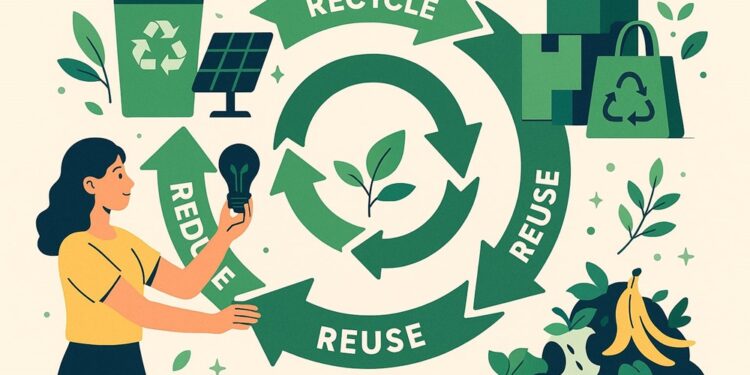Across the Western Balkans, the transition to a circular economy is slowly taking shape through a diverse range of initiatives—some led by local governments, others by civil society, businesses, or international donors. While challenges like political instability, weak infrastructure, and limited public awareness persist, concrete efforts are emerging to promote sustainable waste management, resource efficiency, and community-based innovation. These short articles highlight examples from each country in the region, showcasing early steps toward circular practices that hold the potential to inspire broader transformation.
We invite our readers and partners to share additional stories and examples from their communities—help us map and celebrate the people and projects driving real change.
In 2025, the municipalities of Živinice, Banovići, and Kladanj jointly inaugurated a modern regional waste management centre, marking a significant milestone in Bosnia and Herzegovina’s push toward sustainable waste solutions. The facility was developed to reduce environmental risks stemming from groundwater and soil contamination caused by illegal dumpsites.
A key feature of the centre is its leachate treatment system, which helps mitigate greenhouse gas emissions and prevents spontaneous waste fires—common hazards in unmanaged landfills. As the first phase in a broader strategy for circular solid waste management, the centre is also expected to generate green employment opportunities and foster new partnerships in the environmental sector.
The project was made possible through a €5 million loan from the European Bank for Reconstruction and Development (EBRD), a €2.65 million grant from Sweden, and an additional €374,000 grant from the EU and bilateral donors via the Western Balkans Investment Framework.
To oversee operations, the three municipalities formed a regional waste company, Eko-Sep, now responsible for maintaining and scaling the centre’s activities. According to the EBRD project profile, this initiative exemplifies inter-municipal cooperation, effective use of donor funding, and long-term vision in line with circular economy principles.
Despite existing structural challenges in Bosnia and Herzegovina’s fragmented governance landscape, the Živinice project demonstrates how local leadership and international backing can converge to build real momentum toward environmental sustainability.
Prepared by the GreenCIVIL team, with AI-supported research and editing (ChatGPT/OpenAI), under the LogEx network initiative
This content is part of the GREEN Civil project “Give Me Five!”, within the framework of the Western Balkans Circular Economy Week (May 26- June 1, 2025) under the motto “From Local Fixes to Regional Impact”.
The initiative is implemented by the LogEx regional network, of which CIVIL is a member. The network was launched by the reputable think tank organization Balkan Forum from Kosovo, and with the support of the Rockefeller Brothers Fund from the United States.
This post is also available in: MacedonianAlbanian





